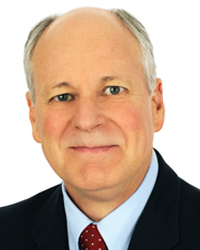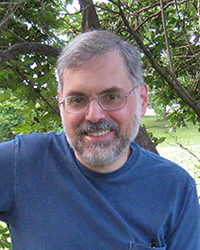![]() Download Newsletter in PDF format
Download Newsletter in PDF format
 Greetings to everyone in the iConquerMS™ community.
Greetings to everyone in the iConquerMS™ community.
As you know, March is MS Awareness Month, intended to inform the public about multiple sclerosis and the need for more research and a better understanding of the origins and progression of the disease. Such national recognition is hugely important to all of us.
It occurs to me, in addition, that this month – and in the months that follow in this exciting era -- we might emphasize the words “MS Empowerment” as well as MS Awareness.
Why is empowerment so vital? Well, as Dr. Eric Topol stated in his recent book "The Patient Will See You Now", the patient is the "single most unused person in healthcare".
Fortunately, that observation is changing at a dizzying pace, fueled by the ubiquitous presence of digital devices, the apps that measure multiple physical an emotional parameters 24/7, and (at last!) the emerging digital connectivity among providers, patients and researchers. Most of all, we are witnessing the self-empowerment of those living with a particular disease to confer together, to share their data singly and in the aggregate as they wish, to raise their voices collectively for a new research model in which they are truly valued, and to express their interests and concerns in partnership with the research community.
In that context, iConquerMS™ is a welcome harbinger of MS Empowerment. And we should celebrate all that you and your loved ones are accomplishing in this unique initiative.
Sincerely,

Robert McBurney, Ph.D.
Principal Investigator, MS Patient-Powered Research Network (iConquerMS™)
President & CEO, Accelerated Cure Project for MS

Finding Common Ground among Partners
Nicholas G. LaRocca, Ph.D.
National Multiple Sclerosis Society
Dr. LaRocca, Vice President, Health Care Delivery and Policy Research at the National MS Society, is a fervent supporter of the goals and strategies of iConquerMS™. He has served on the iConquerMS™ Membership Committee since the start of the initiative. Recently, Dr. LaRocca commented on how much MS research has evolved during his 30+ years in the field, and the many opportunities he sees for productive new pathways in the future.
Q: What's the most striking change you've seen in almost four decades in MS research?
LaRocca: The changes have been dramatic. When I started, most patients were seen by neurologists, and were treated primarily for exacerbations of their disease. There really wasn’t much interest in rehabilitation or quality of life. Today, it’s totally different – since MS is a disease that affects a person for life, we have to help people to live their best lives, looking much more broadly than just at medication.
Q: Who has changed in that picture: the researcher or the person living with MS?
LaRocca: Fortunately, both! I see a real revolution in that people with MS are much more involved in their own treatment today, as well as being highly engaged in research. The research community is also now seeking ways to incorporate patients and their families in a more realistic partnership. Of course, iConquerMS™ and its role within PCORI (Patient-Centered Outcomes Research Institute) is part of that trend. And, there are lots of exciting changes on the horizon.
Q: What does it mean to “look more broadly than just at medication”?
LaRocca: One very fertile area is around lifestyle and wellness, which has only recently been embraced by the research community. This can include exercise, such as what level and types of physical activity can produce what kinds of benefits. Or, it may cross over into biology, such as examining the microbiome to study both good and bad types of bacteria and the role they may play in promoting or compromising health. Diet and nutrition are a major pillar as well, with research honing in on the potential role of Vitamin D in slowing disease progression. The National MS Society is developing a Wellness initiative to explore how lifestyle strategies may help with the challenges of MS, and input and data from iConquerMS™ participants is obviously of critical value to that.
Q: Progress in personalized medicine has taught us that diseases may have many molecular sub-categories that must be treated in different ways. Is that true yet in MS?
LaRocca: We are learning more and more about genetics and MS, but clearly there is no single gene that predisposes for risk of the disease. Rather, there are dozens of areas in the human genome that may play a role. In addition, certain genes may interact with a person’s environment, and we need to know more about the impact of such interactions. We also know that the human body has mechanisms to repair damage even in the central nervous system, so researchers are looking at the factors that interfere with the body’s natural process of restoration, and ways to enhance it.
Q: How can patients play a role in this kind of research?
LaRocca: In the field of so-called molecular or personalized medicine, the patient is truly at the center. We’ll need to hear more of the ‘voice’ of those living with MS, and their families, about their concerns, their tolerance for various types of therapy, their challenges in daily living, and so on. I believe we need to go beyond what has been done before in the relationship between patients and researchers, and actually create a new research model.
Q: What specifically do you hope to accomplish through iConquerMS™?
LaRocca: That’s a long list! I believe iConquerMS™ will be a partner with the National MS Society to find ‘common ground’ between those living with MS and the research community. In that way, we can begin to truly listen to and incorporate the voice of the patient in all types of research. iConquerMS™ may also help to find ways in which individuals with the disease can record their experiences and utilize that data to empower themselves in their own daily lives. iConquerMS™ can also contribute to our effort to determine the true number of individuals with MS in this country, as well as the diversity of those affected by the disease. And those are just a few possibilities – in coming months I’m sure that discussions among patients and researchers will yield more and more fruitful paths for collaboration.
Dr. Nicholas LaRocca is a clinical psychologist who has worked in the field of MS for over 30 years. He was an associate professor at Albert Einstein College of Medicine and New York Medical College before joining the Society in 1997. He currently serves as Vice President of Health Care Delivery and Policy Research in the Advocacy, Services, and Research Department of the Society.
Suggest a Research Question!
iConquerMS™ wants to accelerate research into the topics you care about.
As someone living with MS, you know the disease better than anyone — and your ideas about what researchers should explore are very valuable.
It’s easy for iConquerMS™ registrants: just log into your account at www.iConquerMS.org, and go to the “Connect with Research” menu.
Your Data has Power and So Do You!
Each individual living with MS has the power to drive change. Together, many thousands of us can have huge impact on research.
Consider these ways to introduce others with MS to iConquerMS™ (for printed materials or other assistance, contact us at iConquerMS@acceleratedcure.org)
- Spread the word about iConquerMS™ on social media (#iConquerMS)
- Ask your doctor if you can place iConquerMS™ postcards in his/her office
- Ask your local hospital if you can place iConquerMS™ postcards in their waiting rooms
- Ask your librarian if you can place iConquerMS™ postcards in your local library
- Hang an iConquerMS™ poster on the bulletin boards of your local supermarket, fitness center or rehab center
- Approach the clergy at your church or synagogue, to request an iConquerMS™ mention in the next Bulletin and/or religious service
- Reach out to the local daily or weekly newspaper in your city, to request an article
- Reach out to your local radio and/or TV stations to request a Public Service Announcement
- Request a speaking slot at local community organization events (e.g., Lions Club)
- Request a speaking slot or feature newsletter article from local chapters of organizations you belong to (e.g., women’s or men’s organizations; ethnic organizations)
- Ask your employer if you can send an email to your colleagues about iConquerMS™
And, tell us what works best in your community!